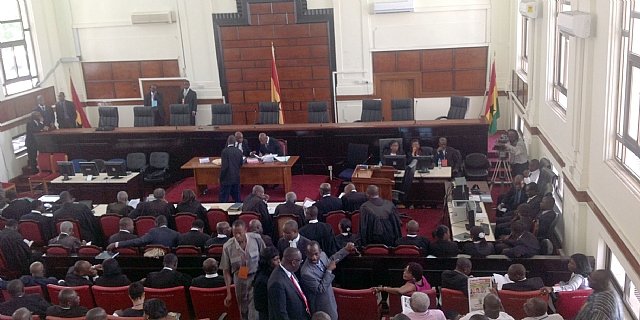Election Petition: Supreme Court timelines to resolve dispute
The 7th December 2020 Presidential Election is over but not without disputes arising from it. Indeed, the election could be re-enacted if the NDC’s position in court is upheld. Only that, this time, it will be a contest for the presidency

The 7th December 2020 Presidential Election is over but not without disputes arising from it.
Indeed, the election could be re-enacted if the NDC’s position in court is upheld. Only that, this time, it will be a contest for the presidency, limited to the President elect, Nana Addo Dankwa Akufo-Addo of the NPP and his predecessor, John Dramani Mahama of the NDC. According to the petition these are the two candidates in the previous elections who had more votes but which votes were not more than fifty percent of the total valid votes cast.
While pundits have said the option of going to court as a means of registering one’s protestation has the potential to lower the political temperature of the country, they add that a protracted dispute in court may cause irreparable damage to the parties in court and the interest they represent. For instance, the president may not have the full concentration to govern. On the other hand, if the protracted court process favours his opponent, Mr. Mahama may have little or no time to exercise his mandate.
This brings into focus the wisdom in recent legislations aimed at giving shorter life spans to such disputes in court.
Per the new Supreme Court rules enacted by Parliament in 2017, Supreme Court (Amendment) (No.2) Rules, 2016(C.I.99) Presidential Election disputes must be determined within forty-two days.
First, an aggrieved party to a Presidential Election has twenty-one days to present a petition to the Supreme Court. This should be after the official declaration by the election governing authority.
On the other part, the successful candidate in the said election and the Electoral Commission, have ten days to respond to the allegations contained in the said petition. The ten days starts from the day the petition was filed.
When this is done, the Supreme Court has the responsibility to conduct a Pre-Trial Hearing among the contending parties within two days from the day the respondents filed their answers.
This opens the stage for Hearing. The parties in court, in this case, Mr John Dramani Mahama, Madam Jean Mensa and President Nana Addo Dankwa Akufo-Addo then call their Witnesses to testify and be cross-examined by each Party. This process must last for six days.
In all, the Supreme Court has forty-two days to deliver its verdict. These days are calculated from the first day the petition was filed in court. However, it can be shorter than the stipulated forty-two days depending on the swiftness with which the respondents file their answers.


